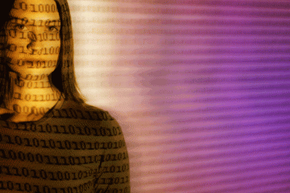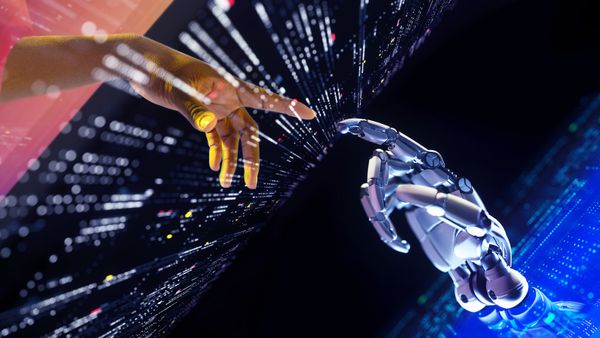What is real? It's a question that has puzzled and amused countless people. As human beings, we're capable of directly perceiving only a fraction of what surrounds us. From a personal point of view, reality seems pretty limited. Is the Internet real? Am I real? Are you?
Many philosophers have put forth the notion of reality being an illusion. One recent version of this theory made the news in 2003. That's when Nick Bostrom, a philosopher at the University of Oxford, put forth an interesting question. What if our reality is actually a computer world that exists in some other reality? At first, you might scoff at the suggestion. But Bostrom's argument is fascinating.
Advertisement
First, Bostrom says, assume that we will reach a point technologically in which we can create a simulated version of a universe -- perhaps even a copy of our own. This could be the singularity, when humans use our understanding of technology and biology to become transhuman. Bostrom argues that if we can create a universe simulation, we almost certainly will do so. Further, we would probably create as many simulations as we could in order to learn more about our own universe, among other reasons.
Next, we assume that the virtual inhabitants of the simulated universe possess characteristics similar to our own, including consciousness, but are unaware that they're in a simulation. Bostrom states that if this is technologically possible, then it's virtually impossible that we aren't living in a computer simulation already.
That's because we can't assume that some other version of intelligent beings -- human or otherwise -- hasn't already hit that technological landmark and created a simulation in which we are now living. Everything we can observe and test would exist within the realm of the simulation, giving us no clue that our reality is in fact just a bunch of ones and zeroes.
Even more mind boggling is the possibility that our universe could be a simulation within another simulation and that we, in turn, could create our own simulations. It becomes a dizzying series of universe nesting dolls, each one contained within another universe.
Bostrom says this doesn't mean that we're definitely living in a computer simulation. The truth might be that it's impossible for us to reach a point in which we can simulate a universe to that extent. That could be due to technological limitations, or it might mean that humans could go extinct before ever reaching the level of sophistication required to simulate a universe on that scale. It's not exactly a happy picture.
As far as philosophical arguments go, this one is a doozy. But why stop there? Three physicists suggest there may be a way to detect whether our universe is really an advanced video game.
Advertisement




